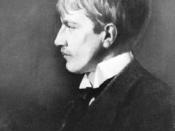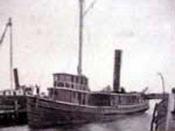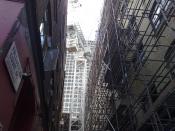Ever since it was first published in 1897, ''The Open Boat'' has widely been considered a masterpiece of literary realism. All of the most recognizable elements of Realism are present within the story. In its graphic probing of events and in its objective description of the characters' psychological state, the story successfully presents a realistic sensation of the characters' experience without any of the false heroism or romantic plots that characterized other contemporary fiction. ''The Open Boat'' has no plot in the traditional sense; it is almost a mere description of thoughts and events. In fact, since author Stephen Crane actually experienced the events related in the story when he was ship-wrecked with the crew of the Commodore, one might suspect that the story is not fiction at all. Indeed, the story's subtitle, ''A Tale Intended to be After the Fact, Being the Experience of Four Men From the Sunk Steamer Commodore,'' presents the story as if it were a journalistic account.
Yet, despite its appearance as an objective narrative, ''The Open Boat'' raises deeply philosophical issues and is rife with symbolism. When analyzed closely, it becomes clear that a simplistic categorization of the story as ''realistic'' fiction fails to do justice to the multi-dimensional qualities of ''The Open Boat.''
A few days after Crane survived a shipwreck off the Florida coast, he published an account of his experience in a newspaper story entitled ''Stephen Crane's Own Story.'' It is interesting to compare this non-fictional account with the short story ''The Open Boat,'' which appeared six months later. In this first account, Crane relates only the events of the Commodore's sinking, without either the descriptive quality or the access to inner thoughts that characterize the later fictional story.


